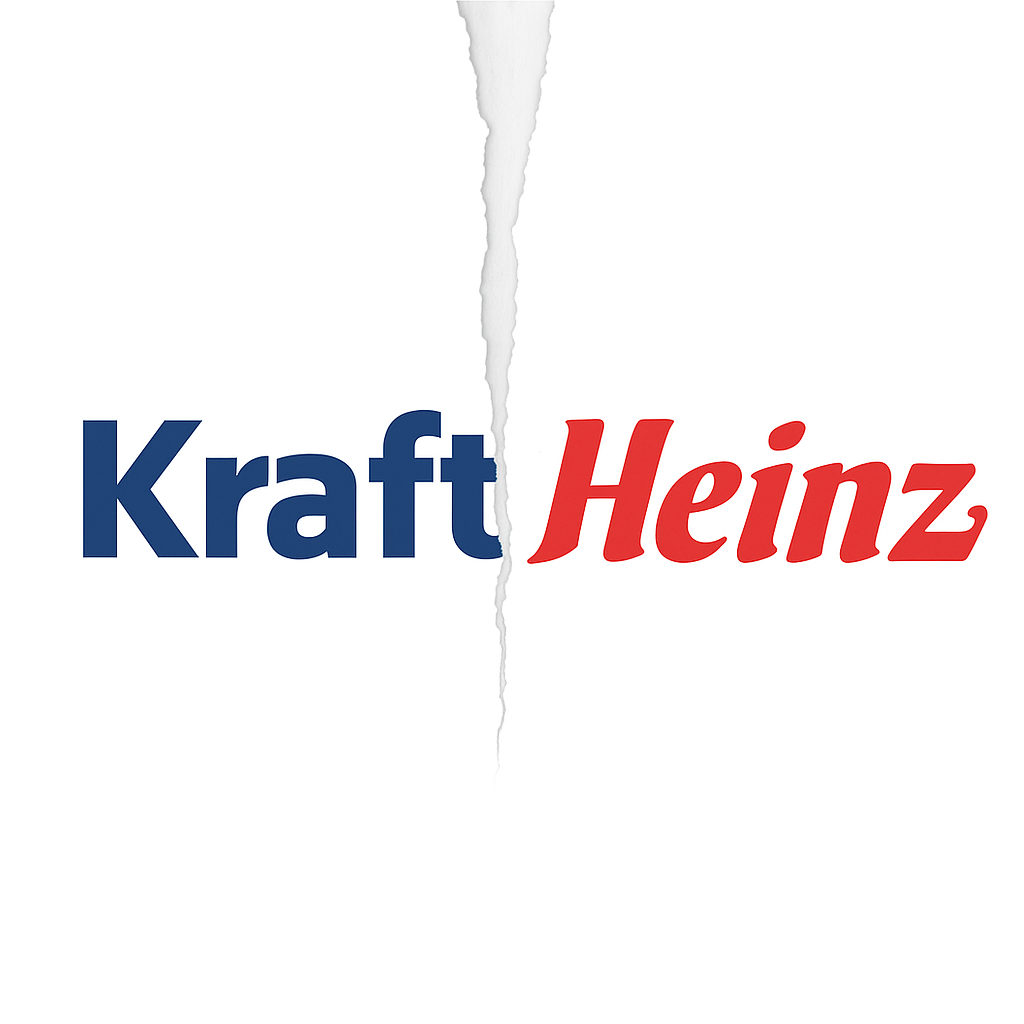Kraft Heinz, the multinational food and beverage giant formed by the blockbuster $46 billion merger of Kraft and Heinz in 2015, has announced a historic split into two independent public companies by the second half of 2026. The strategic move, approved unanimously by the board, marks a dramatic unwinding of one of the largest food industry mergers in history, aimed at unlocking shareholder value, enhancing focus, and enabling faster growth.
The split occurs exactly a decade after the megamerger. It reflects broader structural shifts in the global packaged food industry, driven by evolving consumer preferences, post-inflation cost sensitivity, and the growing demand for healthier, fresher, and regionally customised food options.
🧭 What’s Behind the Split? Kraft Heinz’s Two-Track Strategy
According to executives and recent media reports, the decision is both a strategic pivot and a response to performance challenges of recent years.
Company 1: Grocery Staples (North America Focused)
This entity will house the slower-growing but iconic North American grocery brands, including Oscar Mayer, Kraft Singles, and Lunchables — a segment that generated $10 billion in sales in 2024.
- Will cater primarily to the U.S. and Canadian markets
- Will be led by current CEO Carlos Abrams-Rivera
- Intended to sharpen focus on legacy grocery categories with substantial brand equity
Company 2: Global Condiments & Growth Brands
This company will include faster-growing, internationally scalable products such as Heinz ketchup, Philadelphia cream cheese, and Kraft Mac & Cheese — which together accounted for $15.4 billion in 2024 sales, with 75% of revenue from sauces, seasonings, and spreads.
- Will drive global expansion, especially in emerging markets like India
- The CEO search is underway for this global entity
- Will focus on agility, innovation, and market-specific strategies
-
“By separating into two companies, we’ll be better positioned to align resources, sharpen operational priorities, and invest behind the unique growth opportunities of each business,” said Miguel Patricio, Executive Chair of the Board.
📉 Strategic Reset: A Response to Changing Industry Dynamics
According to The New York Times and The Wall Street Journal, the split is also a response to shifting consumer behaviour. With inflation impacting food affordability and rising demand for less-processed, affordable, and fresh alternatives, Kraft Heinz has struggled in recent quarters.
- Q2 global net sales declined by 2%
- Volume drops are reported in categories like cold cuts, frozen snacks, coffee, and powdered drinks
- The company has sold off parts of its cheese and nuts businesses in the past three years
- Now focusing on high-performing and international brands that align with evolving consumer habits
This mirrors similar moves by industry peers, such as Kellogg (now Kellogg Co.) and Keurig Dr Pepper, which have also spun off lower-growth divisions to focus on higher-margin products.
🇮🇳 What Could This Mean for India? A New Window of Opportunity
Although Kraft Heinz downsized its direct consumer footprint in India — most notably by divesting Complan and Glucon-D to Zydus Wellness in 2019 — the global restructuring could re-spark interest in the Indian dairy and food processing market. Here’s why:
- India’s value-added dairy sector is booming, with growing demand for processed cheese, ready-to-cook meals, and dairy-based sauces
- Fortified and functional dairy products are gaining traction among urban consumers
- The global condiments and sauces division may consider local manufacturing or partnerships, particularly given India’s growing quick-service restaurant (QSR) and cloud kitchen ecosystem.
India’s position as a cost-efficient, high-volume food market makes it a likely candidate for renewed attention under the growth-focused, international business unit of Kraft Heinz.
